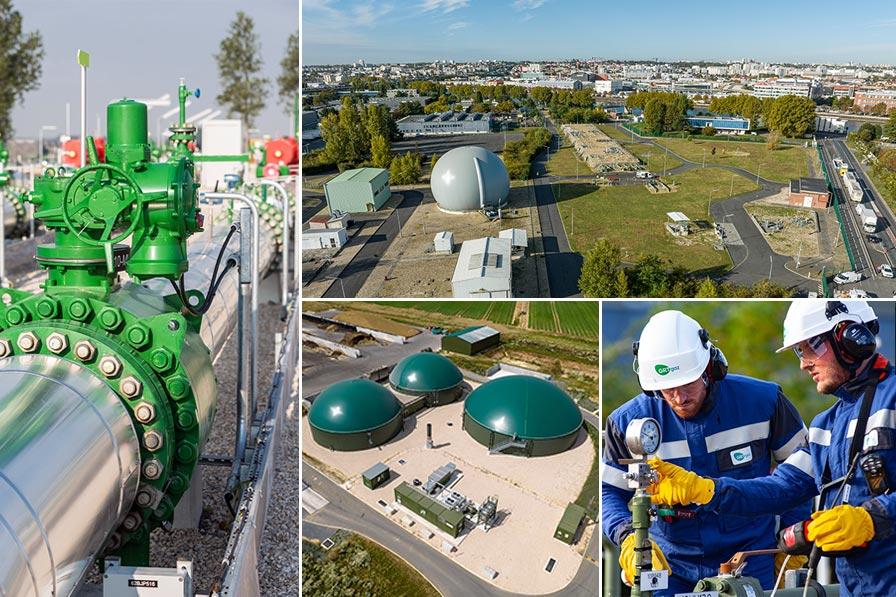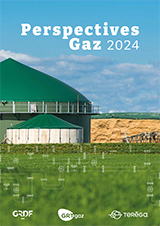2024 perspectives gaz

There are several possible pathways to successful decarbonisation. The Perspectives gaz (Gas prospects) scenarios demonstrate the importance of gas and green gases in decarbonising all activity sectors, and rendering the energy system flexible and resilient. This prospecting exercise undertaken by GRDF, GRTgaz and Teréga details the gas consumption and renewable and low-carbon gas production forecasts for 2030 and 2035. It establishes a pathway – one that is compatible with the European “Fit-for-55” climate targets – which is in line with the commitment to using less gas, using it more efficiently and greening it. The Perspectives gaz scenarios set out a pathway that is good for the environment, people’s purchasing power and the energy system’s equilibrium.
Five times more renewable and low-carbon gas production between now and 2030
The renewable and low-carbon gas production sector is in a position to leverage its potential in order to quickly and meaningfully increase the quantities of gas produced in France. The Perspectives gaz predict that 60 TWh of renewable and low-carbon gas (excluding hydrogen) will be produced from 2030 onwards. This is set to double in 2035. This outlook is in line with the targets set by Europe for the primary renewable gas production method: methanisation. Solagro confirms that there is enough biomass available to increase the quantities of renewable gas produced by methanisation.
Perspectives gaz – a scenario which helps us to reach our decarbonisation targets
Combined with increased use of renewable and low-carbon gases, lower consumption helps to reduce greenhouse gas emissions in the scenario compatible with the climate targets set out in the European “Fit-for-55” plan. In 2030, 320 TWh/year of gas will be consumed, some 20% of which will be renewable and low-carbon gas. These figures do not take into account the growing quantities of hydrogen which will be used, particularly in manufacturing. Network operators are gearing up to develop all the infrastructure that will be needed to cater to these extremely varied scenarios in terms of hydrogen consumption and production.
Energy sobriety and efficiency – essential levers for consuming renewably at an acceptable cost
Developed for each activity sector, the Perspectives gaz are in line with the scenarios selected by the CRE (the French energy regulator) in its study of the future of gas infrastructure. The pathway for total gas consumption in the benchmark scenario follows the trends for lower consumption. These are the energy efficiency and sobriety levers which will help lower consumption for 10 million gas customers. Decoupling consumption and the number of customers helps structure the transition such that consumers benefit.
At a press conference held this morning, system operators presented their decarbonisation pathways and emphasised that the costs associated with adapting gas infrastructure are well managed. Managing costs in this way and maintaining a client base in the construction sector and in manufacturing will ensure that gas remains competitive over time.
Several factors could result in a less pronounced reduction in gas consumption
As was the case in previous editions, GRDF, GRTgaz and Teréga have added further detail to the benchmark scenario with a sensitivity study. There is significant and recognised uncertainty associated with a number of parameters, and this could have considerable impact on gas consumption. Gas requirements will be highly dependent on the availability of nuclear facilities and the deployment of new renewable electricity generation means – both in France and in neighbouring countries – as well as the speed at which uses are electrified. The delay in meeting a number of the energy transition’s aims or conversely, the consequences of more proactive policies on re-industrialisation could lead to greater volumes of gas being required.
Documents related to the 2024 gas outlook
Publications
